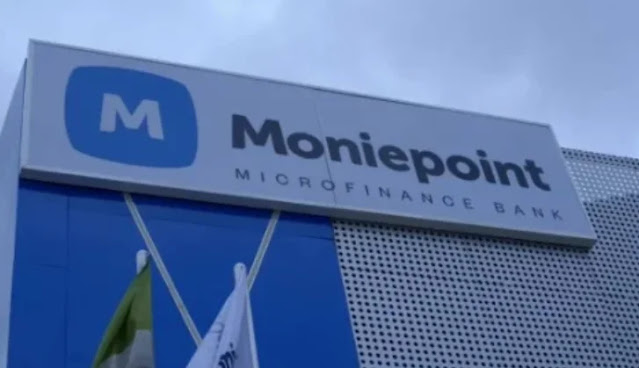Moniepoint Inc. and the Nigerian-British Chamber of Commerce (NBCC) have called for financing models that are faster, more transparent, and centred on human needs, describing them as critical to unlocking growth and securing the future of Nigerian small and medium-sized enterprises (SMEs).
The appeal was made on Thursday in Lagos at the NBCC and Moniepoint SME forum themed “Money in Motion: Unlocking Capital, Driving SME Prosperity.”
Senior Vice President, Distribution Network Sales at Moniepoint Inc., Mr Ezekiel Sanni, said that in 2025, access to capital alone was no longer enough.
He observed that although the financial sector had improved the availability of funds, SMEs continued to grapple with delays, opaque terms, and a lack of trust in the financing process.
Drawing on Moniepoint’s work with small businesses, Sanni explained that effective capital must be simple, fast, supportive, and human-focused to truly fuel growth.
He called on the NBCC to deepen its role as a connector between policy and enterprise, local and international markets, and between financial capital and business capacity.
According to him, the Chamber’s priorities should include advancing SME-friendly trade finance, widening digital literacy and inclusion, advocating for fair digital lending rules, and strengthening UK–Nigeria SME partnerships.
“To drive SME prosperity, we must design systems that move capital at the speed of trust and make SMEs visible, creditworthy and scalable. Success should be measured not just by how much money was disbursed but by how many lives were positively changed. Across Nigeria, SMEs are ready to scale. We must ensure that capital reaches them quickly and effectively,” he said.
Vice President, Credit Portfolio Management at Moniepoint, Mr Tolulope Alegbe, stressed that access to finance remained vital, but loans only made a difference when businesses were “loan ready.”
He listed the benefits of loan readiness as quicker access to funds, better lending terms, stronger credibility with investors, and improved opportunities for expansion.
Alegbe outlined Moniepoint’s four-pronged lending approach, which includes using digital payment records as financial history, providing tailored working capital loans, employing data-driven credit assessments, and offering advisory services to help improve financial practices.
He pointed out that many SMEs, despite their need for credit, avoided formal institutions when seeking funds. Citing Moniepoint’s informal SME report, he noted that more than 70 per cent relied on family and friends, compared with 15.1 per cent who turned to loan apps and 12.2 per cent who approached banks.
According to him, solutions must include alternative collateral arrangements, digital payments, traceable records, data-based credit scoring, and risk-sharing guarantee schemes.
“To build creditworthiness, businesses must maintain proper records through digital payments and bookkeeping, formalise their finances, and start small with loans that are repaid consistently to build eligibility for larger facilities. At Moniepoint, we believe credit should be a pathway to growth. Once businesses are ready, responsive lenders will help them thrive,” Alegbe said.
President of the NBCC, Mr Abimbola Olashore, added that supporting entrepreneurs generated jobs, encouraged innovation, and provided a foundation for sustainable economic development.
Olashore reaffirmed the Chamber’s commitment to strengthening trade and investment links between Nigeria and the United Kingdom. He also stressed that the SME event underscored NBCC’s wider mission, which extends beyond trade to include knowledge, innovation, and capacity building.
“Let us treat this moment as a rallying point to support SMEs, deepen trade partnerships, and create opportunities that will shape the future of enterprise in Nigeria,” he said.






